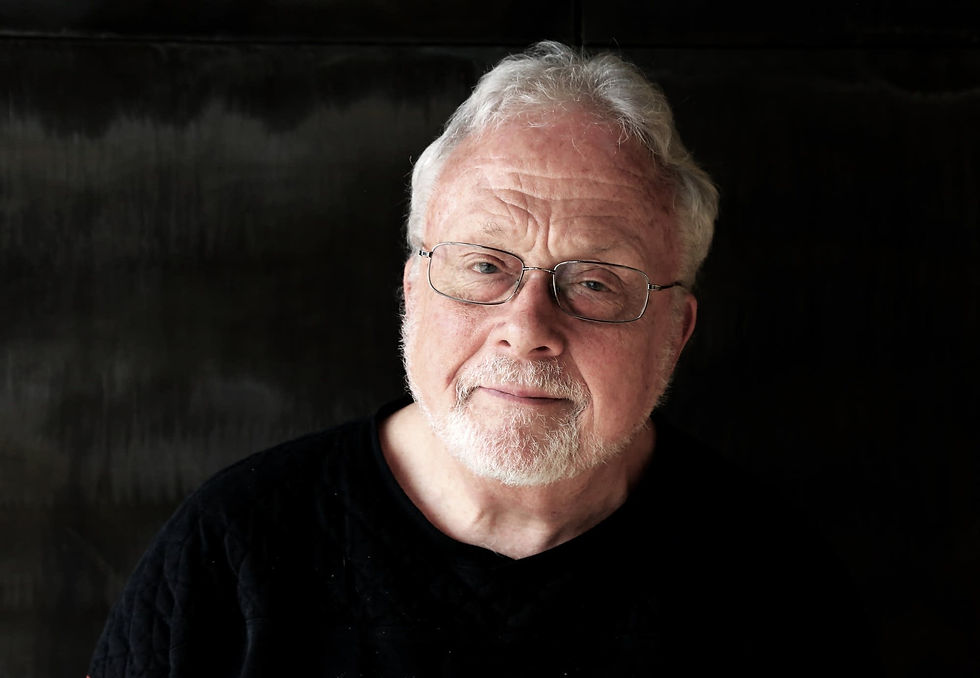William Bolcom
- Aug 11, 2022
- 4 min read
Updated: Apr 24, 2024

National Medal of Arts, Pulitzer Prize, and Grammy Award-winner William Bolcom (born May 26, 1938) is an American composer of keyboard, chamber, operatic, vocal, choral, and symphonic music. Born in Seattle, Washington, he began composition studies at the age of 11 with George Frederick McKay and John Verrall at the University of Washington while continuing piano lessons with Madame Berthe Poncy Jacobson. He later studied with Darius Milhaud at Mills College while working on his Master of Arts degree, with Leland Smith at Stanford University while working on his D.M.A., and with Olivier Messiaen and Milhaud at the Paris Conservatoire, where he received the 2éme Prix de Composition. He joined the faculty of the University of Michigan's School of Music in 1973, was named the Ross Lee Finney Distinguished University Professor of Composition in 1994, and retired in 2008 after 35 years. Bolcom won the Pulitzer Prize for music in 1988 for 12 New Etudes for Piano, and his setting of William Blake's Songs of Innocence and Songs of Experience on the Naxos label won four Grammy Awards in 2005.
Among Bolcom's great achievements in piano literature, his Complete Rags for Piano is considered to be a major work, comprising twenty-two piano rags written from the late 1960s to the early 1990s. These rags descend from the tradition of early twentieth-century American ragtime, blending classic ragtime style with nineteen-thcentury romanticism and modern compositional techniques.
As a pianist Bolcom has performed and recorded his own work frequently in collaboration with his wife and musical partner, mezzo-soprano Joan Morris. Their primary specialties in both concerts and recordings are cabaret songs, show tunes, and American popular songs of the 20th century. They have recorded 25 albums together – Autumn Leaves was released in 2015.
As a composer, Bolcom has written four violin sonatas; nine symphonies; four operas (McTeague, A View from the Bridge, A Wedding, and Dinner at Eight), plus several musical theater operas; twelve string quartets; two film scores (Hester Street and Illuminata); incidental music for stage plays, including Arthur Miller's Broken Glass; fanfares and occasional pieces; and an extensive catalogue of chamber, choral, and vocal works. The University of Michigan School of Music, Theatre and Dance Opera Department mounted four performances of it in November 2017 in Ann Arbor, Michigan, and the Wexford Festival Opera presented five performances in October and November 2018. A November 3, 2018, radio broadcast in Ireland with streaming across Europe will be followed by a rebroadcast on BBC Radio 3 in the U.K. in March 2019.
Bolcom's setting of William Blake's Songs of Innocence and of Experience, a full evening's work for soloists, choruses, and orchestra, culminated 25 years of work on the piece. The April 8, 2004, performance in the recently-renovated Hill Auditorium in Ann Arbor, Michigan, was recorded by Naxos. The CD won four Grammy Awards in 2005: Best Choral Performance, Best Classical Contemporary Composition, Best Classical Album, and Producer of the Year, Classical.
Selected Performances
Graceful Ghost Rag (1970) - Graceful Ghost Rag was written by William Bolcom in 1970 and is part of his trio of "Ghost" rags inspired by the renewed interest in Scott Joplin's music at the time. It's a beautifully elegant but sweetly sad piece, and has since become one of his most popular piano compositions. The piece was dedicated to Bolcom's father, whose spirit Bolcom said he often felt hovering around his piano while he played at night.
New York Lights (2003) - William Bolcom's "New York Lights" does a wonderful job of capturing the energy and vibrancy of New York City. Originally composed for Bolcom's second opera, he arranged the piece for solo piano in 2003. Throughout the piece, Bolcom employs a variety of compositional techniques to create a musical experience that is both engaging and challenging for pianists. The piece is full of complex rhythms, intricate runs, and unexpected harmonic shifts, requiring a high level of technical skill and musicality from the performer.
The Eternal Feminine (1969) - "The Eternal Feminine" is a captivating and spirited ragtime piano composition by the American composer and pianist, William Bolcom. Born in 1938, Bolcom has made significant contributions to contemporary classical music, embracing a wide range of styles and genres in his extensive body of work. "The Eternal Feminine" is a delightful example of his mastery of the ragtime style, a genre that has deep roots in American musical tradition.
The composition captures the essence of its title. Bolcom's use of syncopated rhythms and catchy melodies invokes a sense of celebration and playfulness. The piece is characterized by its lively tempo, intricate pianistic techniques, and a sense of improvisational freedom that is central to the ragtime style.
Bolcom's performance directions offer the pianist ample room for interpretation, encouraging them to infuse their personality and flair into the music. This allows for a unique and dynamic rendition with each performance, adding to the piece's enduring charm.
“The Eternal Feminine” is part of Bolcom’s 4-movement piano suite titled “The Garden of Eden.
Locating the Music
Bolcom's music is easily located through various online stores such as Amazon and Sheetmusicplus.
List of Piano Compositions
Miscellaneous rags (24)
Romantic Pieces (1959)
Twelve Etudes (1959-66)
Fantasy-Sonata (1961)
Interlude (1963)
Dream Music No. 1 (1965)
Three Ghost Rags (1970)
Abendmusik (1973)
The Garden of Eden (1974)
Twelve New Etudes for Piano (1977-1986)
Three Dance Portraits (1986)
Monsterpieces (1980)
Recuerdos (1991)
Dedicace (1992)
Sonata for Two Pianos in One Movement (1993)
Haunted Labyrinth (1994)
Nine Bagatelles (1996)
A 60-Second Ballet (1997)
Collusions (1998)
Bird Spirits (1999)
New York Lights (1999)
Nine New Bagatelles (2005)
Ballade (2008)
Variations on a Theme by George Rochberg (2017)


